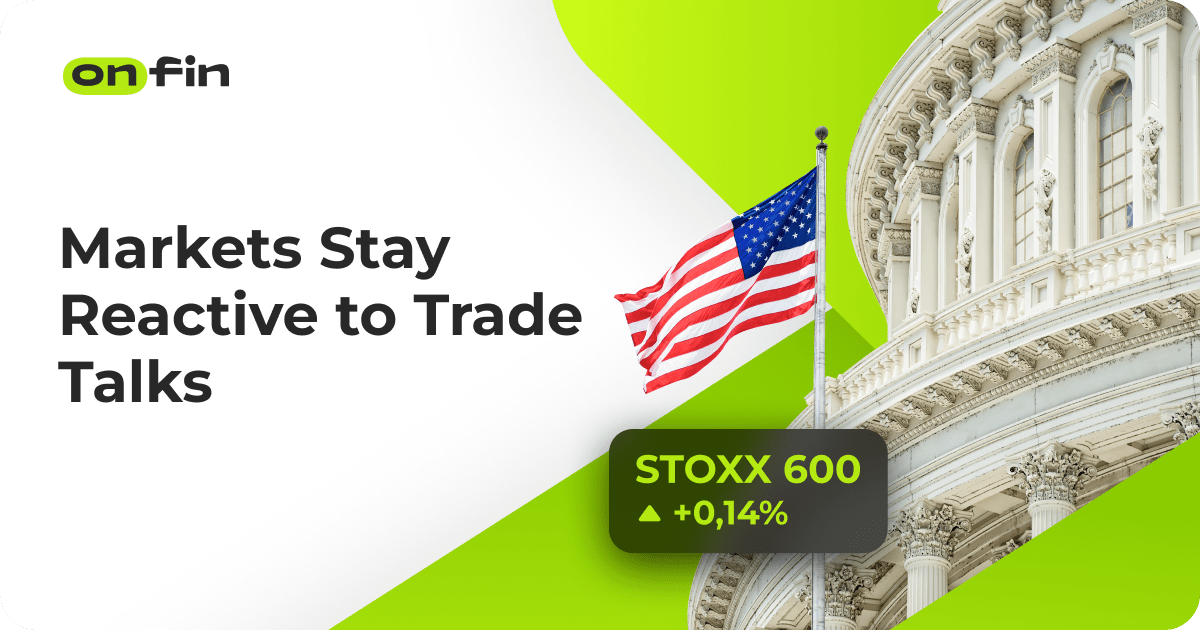U.S. stock markets closed lower on Friday, reflecting renewed investor anxiety over tariff uncertainties, yet finished both the week and the month higher overall, despite ongoing volatility stemming from the Trump administration’s shifting stance on trade policies. According to Reuters, the Dow Jones Industrial Average, S&P 500, and Nasdaq Composite all ended Friday’s session down modestly, pressured by heightened concerns after President Trump’s recent remarks regarding China.
European markets showed resilience, with the pan-European STOXX 600 index closing slightly higher, up 0.14% on Friday. The index posted a solid weekly performance and finished May with notable gains of approximately 4%, signaling investor optimism despite persistent trade policy uncertainties. Analysts attributed the European markets’ stability to solid corporate earnings reports and investor expectations for continued economic recovery within the Eurozone.
Asian markets experienced mixed results, but overall sentiment remained positive. The MSCI Asia Pacific index, excluding Japan, advanced 0.74% overnight. Although it recorded a weekly decline, the index secured a nearly 5% increase for May, marking its strongest monthly performance since September 2024. This positive trend was primarily driven by improved economic data from major Asian economies and hopes for easing trade tensions.
The global MSCI index, encompassing key markets worldwide, ended marginally lower by 0.07% at 879.63 points on Friday. Nonetheless, the index gained 1.32% for the week and 5.53% for the entire month, achieving its most robust monthly gain since November 2023. Market analysts indicated that the month’s gains reflect cautious optimism that major economies could navigate ongoing geopolitical and economic risks.
“Until recently, we thought that markets had become somewhat desensitized to tariff discussions, assuming many risks were already priced in,” said Mark Malek, chief investment officer at Siebert.NXT. “However, the events of this past week clearly show that investor sentiment remains highly reactive to trade-related headlines. Any new development or statement can still significantly impact market behavior.”
On Friday, President Trump accused China of violating recent agreements regarding the mutual rollback of tariffs and restrictions on trade involving critical resources. Trump’s statement included a veiled threat of further hardening his administration’s stance toward Beijing, reintroducing uncertainty into investor considerations. This declaration quickly unsettled financial markets, as traders reassessed the potential for renewed escalation in trade tensions.
This latest statement follows earlier developments wherein the U.S. Court of International Trade challenged the legitimacy of Trump’s tariff policies, prompting a swift appeal from the administration. Investors are now bracing for prolonged legal battles and increased uncertainty, further complicating market dynamics.
Looking ahead, analysts predict that markets will remain volatile, sensitive not only to tariff negotiations but also to critical economic data releases scheduled for early June. Upcoming employment figures, inflation reports, and consumer confidence data from the U.S. will be closely monitored by market participants seeking to gauge the broader economic impact of tariff policies and other fiscal uncertainties.
Investors will also focus on geopolitical developments, particularly responses from China and other major trading partners affected by recent U.S. policies. Diplomatic interactions and potential retaliatory measures could significantly influence global market sentiment in the coming weeks, maintaining heightened sensitivity across major financial indices.







